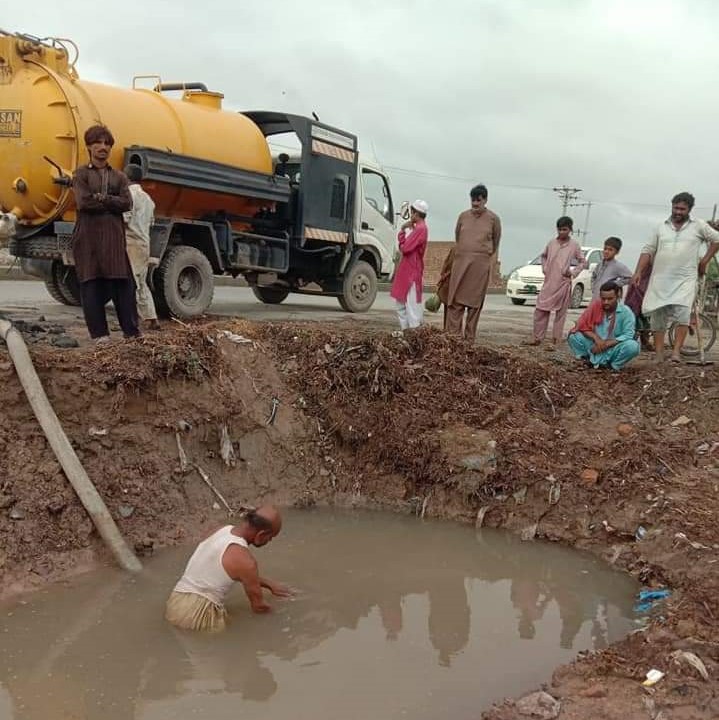Hamida Javed, a resident and Lady Health Supervisor of Usman Colony in the Kuchi Mandi area of Liaqatpur has to deal with a significant water crisis. Her area has no water for several days every two months, leading to severe problems for the entire community.
Hamida explains that the underground water is too salty for laundry and dishwashing. To meet their domestic water needs, she has to buy water at the cost of Rs 40 per gallon. Additionally, she regularly pays water bills to the municipal committee every month.
“When municipal committee officials are asked about the arrival of water, the response received is that the main pipeline coming from Islamabad has burst and repair work is underway.”
Due to the salinity of underground water in Liaqatpur, a plan was formulated in 1980 to supply canal water to the area. This initiative led to the formation of four large ponds and filtration systems at the rear of Tehsil HQ Hospital Liaqatpur. As the city’s population exceeded 60 thousand, the demand for clean water increased.
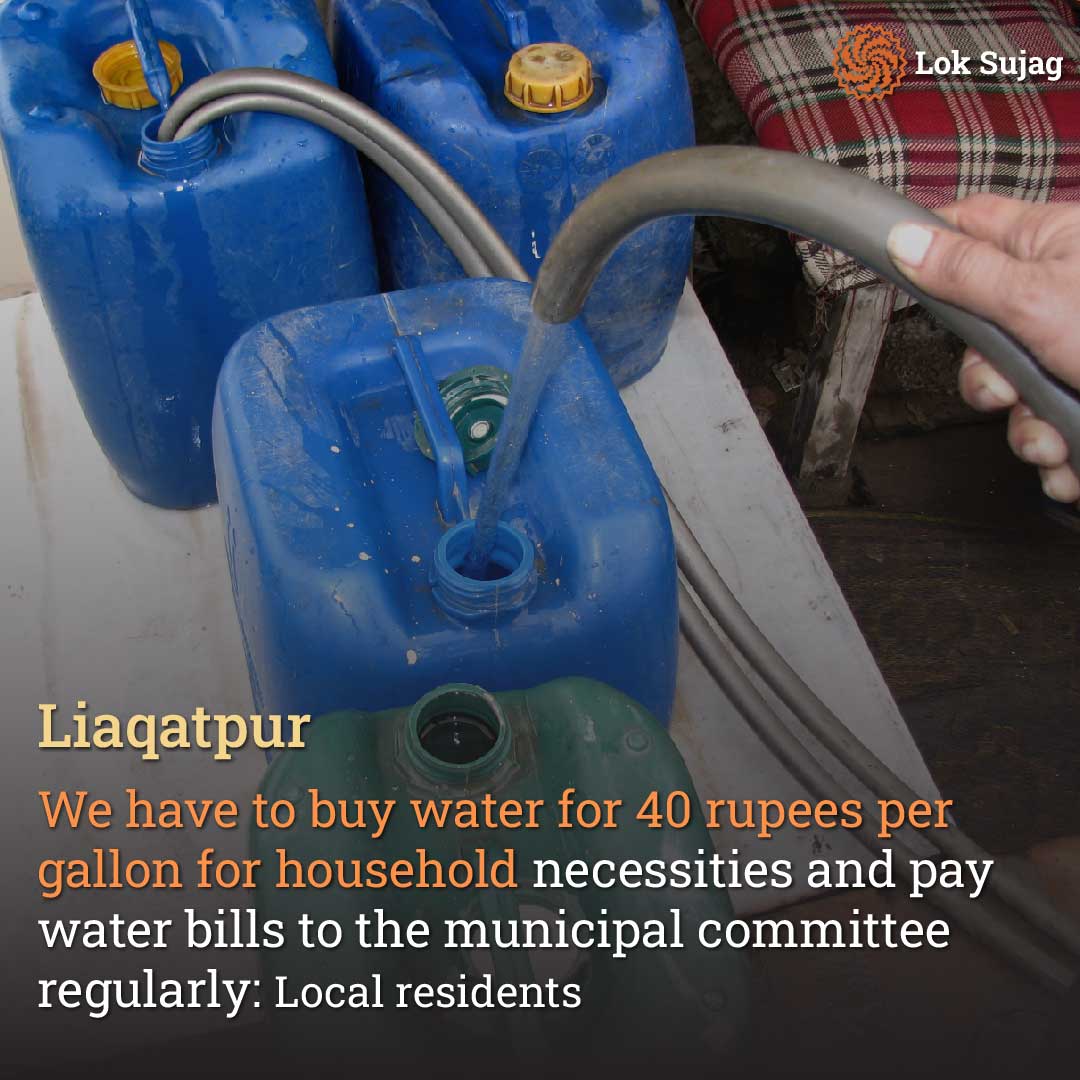
In 2007, the then Tehsil Nazim Makhdoom Syed Mobeen Ahmed spearheaded a new water supply project supported by the Punjab Municipal Development Fund Company with an investment of 23 crore rupees. This project involved the installation of a tube well on the outskirts of Allahabad, six kilometres (km) away, to provide clean water to Liaqatpur.
However, in 2016, miscommunication between the Department of Highways and Public Health resulted in one-way road construction over the pipeline from Allahabad to Liaqatpur.
MPA Chaudhry Masood Ahmed, elected from PP 257 in 1882, approved an additional Rs 22 crore funds. This funding was meant to close the old pipeline running beneath the road and lay a new parallel pipeline, reportedly guaranteed to last 100 years.
The Department of Public Health Engineering was entrusted with completing the project and handing it over to the Municipal Committee of Liaqatpur. However, when the new pipeline was laid and filled with water, it began bursting at various points. Subsequently, the pipeline has burst multiple times, disrupting the city’s water supply.
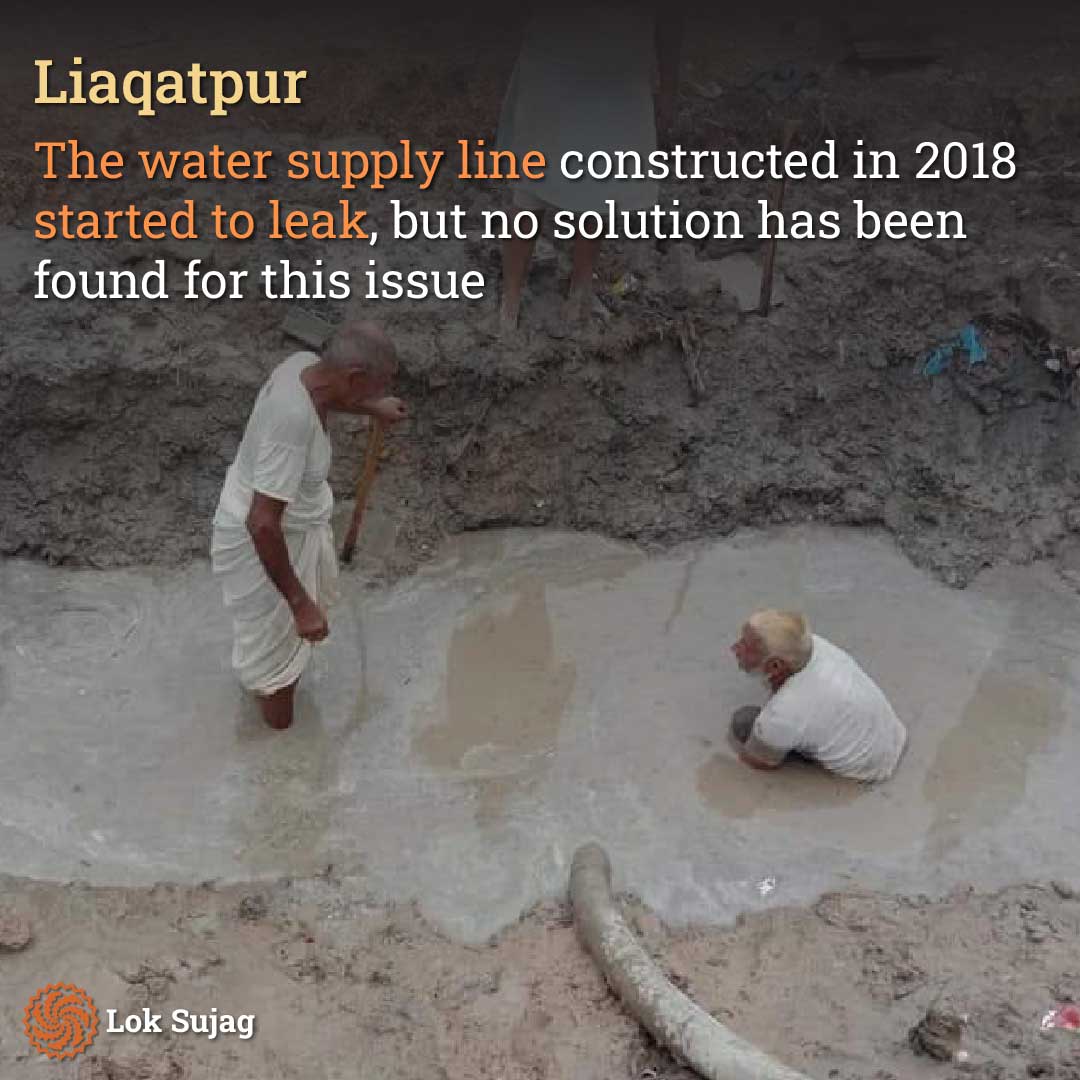
Abu Hurairah Alvi, a journalist from Liaqatpur, lodged a complaint on the Chief Minister’s portal on June 27 this year regarding the recurring issues with the water supply scheme. In July, he received a response claiming that according to the SDO of the Public Health Department and Axion report, the Public Health Engineering Department of Liaqatpur had completed the project and handed it over to the Municipal Committee a year ago. The reply indicated that the scheme was running smoothly, with minor water leakage at a joint. This response contradicted the reality on the ground.
Khalid Rafiq, the Chief Sanitary Inspector of the Municipal Committee Liaqatpur, attributes the pipeline bursts to technical failures.
“Two parallel pipelines were laid from Allahabad, which should have been at least four feet apart. However, the Public Health Department neglected to maintain even an inch of space between the two lines. The two lines are even positioned atop one another in certain areas.”
He further explains that the proper installation process required placing sand under the lines before the pipeline was laid, a crucial step that was omitted.
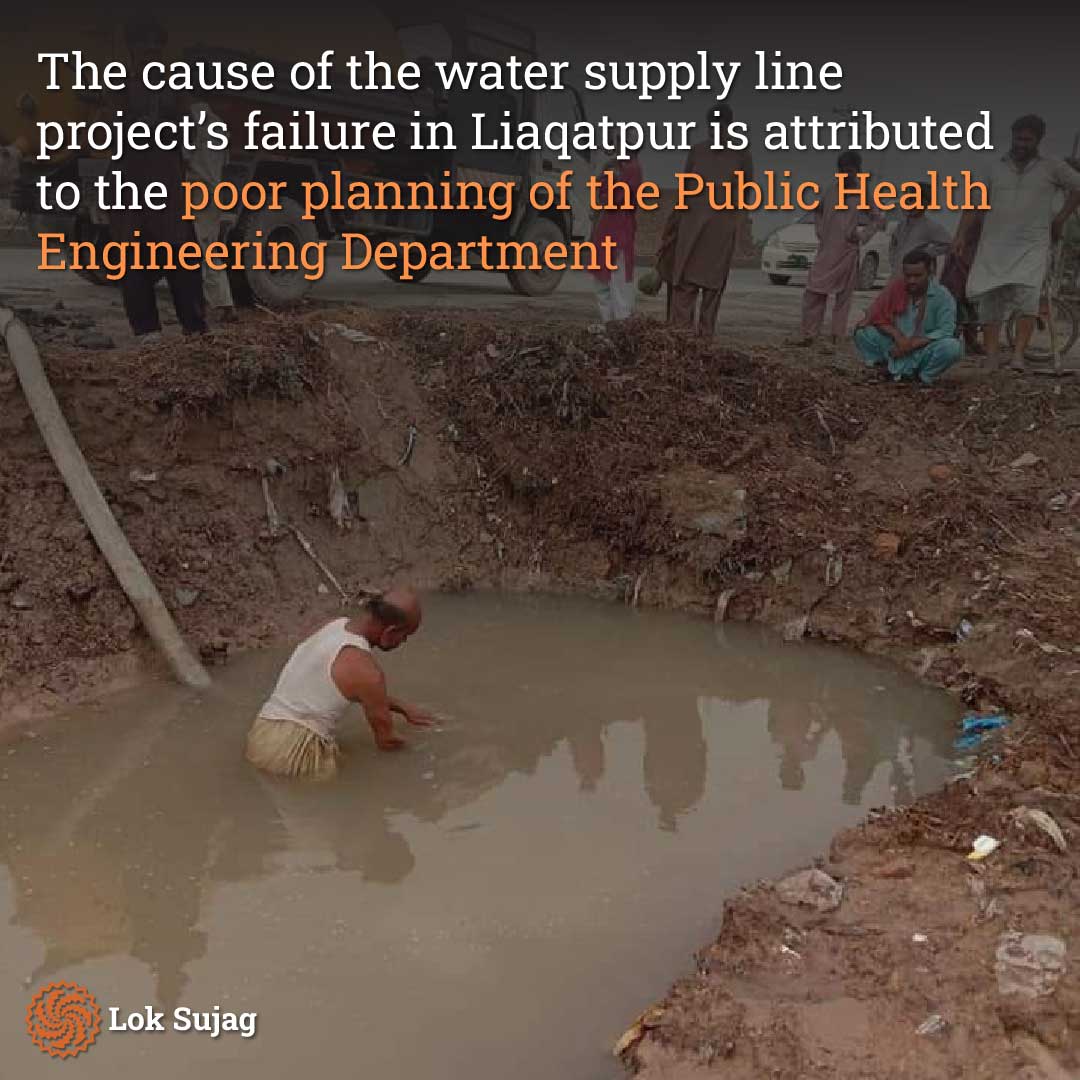
“The pipeline routes go through brick kilns. In the local language, fragments of old bricks from these kilns, known as ‘khangar’, are situated beneath the pipelines. As the pipeline vibrates with the water flow, the pointed khangar underneath poke holes in it. This is why it frequently bursts from the bottom.”
He mentions that the municipal committee lacks the proper arrangement for repairing the pipeline and the necessary tools. Also, the Public Health Engineering Department has not yet transferred the scheme to the Municipal Committee.
Malik Yasir, Sub-Engineer of the Department of Public Health Engineering in Liaqatpur, explains that although Rs 22 crore was allocated for this scheme, it was completed with only Rs 16 crore. The department has not yet transferred this scheme to the Liaqatpur Municipal Committee; however, the city has been receiving water supply for the past one and a half years through this scheme. He states that letters have been sent to the relevant departments requesting the scheme’s handover, and the work will proceed upon approval from the secretaries.
Also Read
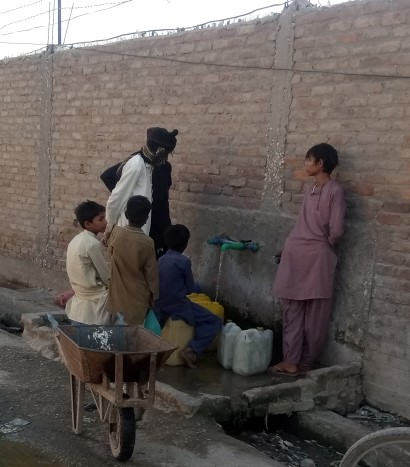
Thirsty city on the banks: Sukkur facing severe drinking water crisis
Malik Yasir also confirms that pointed pieces of bricks under the pipelines cause the pipeline bursts.
Former Member of Provincial Assembly Chaudhry Masood Ahmed, who approved the scheme, says that the remaining six crore rupees will be used to enhance the water supply system in Liaqatpur City. Overhead water tanks will also be constructed for this purpose.
He says that the repeated bursting of the pipeline raises questions about the capacity and competence of the supervising officers and technical team of the Public Health Department. “If there were blockages of stones in the pipeline route, why wasn’t preventive maintenance carried out to avoid them?”
Parvez Akhtar Gujjar, Chief Officer of Liaqatpur Municipal Committee, assumed charge just two months ago. He states that in any scheme, if there is incomplete planning and negligence, the technical committee or the Department of Public Health, responsible for the scheme’s handover process, will handle the situation.
Published on 24 Aug 2023
